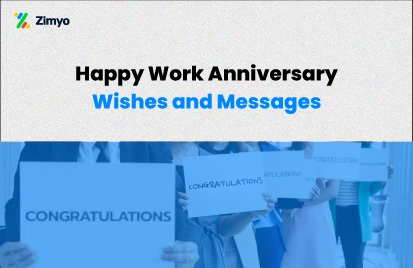- Are you having troubles with your talent retention rates?
- Are you facing difficulties in talent retention and attraction in the competitive job market?
- Are you looking for practical ways to increase employee loyalty, productivity, and morale?
If the answer to the above questions is yes then do not worry you’re not alone. Today it is quite challenging to attract and keep top talent for organizational success in the United Arab Emirates (UAE) competitive business environment. Therefore, top employee engagement and retention strategies in UAE really matters.
Since UAE has a heterogeneous workforce that comprises people with different skill sets and cultural backgrounds it becomes essential to employee engagement and retention strategies in UAE. The world of HR management requires creative ways to overcome specific challenges, such as managing cultural differences and the high cost of living.
Come along as we examine the top employee engagement and retention strategies in UAE for organization. Let’s talk about how to get past your pain points and establish a vibrant work atmosphere where employees are inspired, motivated, and dedicated to success.
What is Employee Engagement and Retention strategies in UAE?

Before looking into the strategies, let us first understand what is the meaning of the terms employee engagement and retention. Employee engagement is the emotional connection and dedication that employees have to their jobs, organizations, and objectives.
However, the ability of the organization to keep its employees for a specific amount of time is referred to as employee retention. It entails establishing a system where employees are encouraged to stick in the business for the long run and feel supported and valued.
Employees who are engaged are brand ambassadors for their organization and have a strong sense of passion for what they do. They generally go above and beyond their actual job description or what is required of them. Comprehending these ideas is essential to formulating tactics that improve employee loyalty and happiness.
Importance of Employee Engagement and Retention Strategies in UAE

Both employee engagement and retention strategies in UAE is very important for the overall success of the organization for several reasons. This is why it’s critical to retain employees:
1. Cost savings: Employee turnover can come at a high cost to the organization. Advertising, recruitment fees, and onboarding are just a few of the expenses associated with finding, selecting, and training new hires.
Additionally, while recruits require some time to become used to their responsibilities, productivity may decline, which would hurt the bottom line of the organization. Employers can avoid these expenses and preserve operational effectiveness by holding onto their workforce.
2. Increase in Productivity: Experienced and engaged employees perform their jobs more effectively. They can work well with others in a collaborative environment, comprehend their responsibilities, and are familiar with the policies and processes of the business. Elevated employee attrition can cause havoc with workflow, escalate mistakes, and diminish productivity.
3. Developing client Relationships: Employees are essential to the establishment and upkeep of client relationships. Employees with experience who have built rapport and trust with customers are better able to satisfy their requirements and successfully handle their issues.
Increase in employee turnover rates can damage these connections, resulting in unhappy customers and possible loss of business. Organizations can improve customer loyalty and promote stronger customer relationships by holding onto informed and experienced employees.
4. Attracting Top Talent: In the employment market, organizations with a reputation for maintaining high employee retention rates tend to attract top talent. Prospective employees are more inclined to look for jobs at organizations recognized for appreciating their employees and providing chances for advancement.
Organizations can have a competitive edge in the talent market by attracting and retaining the top personnel in their sector with the support of a strong employer brand based on employee retention.
Ways to improve Employee Engagement and Retention Strategies in UAE important

Now that you have understood how important is employee engagement and retention strategies in UAE. Let us understand what are ways in which you can improve them.
1. Offer Opportunities for Growth and Development
First way to improve employee engagement and retention strategies in UAE is when an organization provides possibilities for professional development and career promotion, its employees are more inclined to stick around. Employers should give employees access to resources for career planning, mentorship opportunities, and training courses, among other obvious development options.
Employees can create goals for progress and discover areas for improvement with the support of constructive feedback and regular performance reviews.Organizations should also promote and provide employees the chance to take on new tasks and responsibilities to promote internal mobility.
2. Acknowledge and Reward Achievements
Secondly, rewards and recognition are effective motivators that raise employee engagement and retention strategies in UAE. One of the ways to do so is by establishing official recognition programs to honor employees’ accomplishments and efforts. This can take the form of public acknowledgment events, written compliments, or conversational appreciation.
Organizations should encourage managers and peers to give regular feedback and expressions of gratitude for a job well done. You can promote positive attitudes and show gratitude for the efforts and contributions of your employees by praising and rewarding accomplishments.
3. Establish a Positive Work Environment
The employee engagement and retention strategies in UAE are largely dependent on a pleasant work environment. Employee motivation and commitment to their work are more likely to increase when they feel appreciated, respected, and supported.
Establishing a culture of trust, open communication, and collaboration should be an organization’s top priority if it wants to encourage a healthy work environment. This entails developing cordial working relationships amongst coworkers, advocating for decision-making procedures to be transparent, and boosting teamwork. Furthermore, furnishing a secure and comfortable physical work area might enhance employees’ feelings of contentment and welfare.
4. Promote Work-Life Balance
Maintaining a healthy work-life balance is essential for employee well-being and satisfaction. Organizations can support work-life balance by establishing flexible work arrangements to better manage their personal and professional duties.
Additionally, encouraging employees to take regular breaks and time off can help prevent burnout and improve overall job satisfaction. By promoting work-life balances, organizations demonstrate their commitment to supporting employees’ holistic well-being and helping them achieve a healthy balance between their work and personal lives.
5. Encourage Employee Well-being
Initiatives for employee wellbeing can significantly affect retention and engagement. Wellness initiatives that support employee’s mental, emotional, and physical health should be provided by organizations. This can involve having access to exercise centers or programs, mental health services, stress reduction courses, and dietary advice.
Organizations can also promote healthy behaviors by offering tools and assistance for initiatives like walking meetings, mindful meditation, and healthy food selections. Organizations can show their dedication to helping employees’ general health and well-being by encouraging employee wellness.
6. Make an Investment in Leadership Training
Encouraging work environments and boosting employee engagement requires strong leadership. Organizations should fund leadership development initiatives to assist managers in acquiring the abilities necessary for effective leadership. Training in emotional intelligence, teamwork, communication, and conflict resolution may fall under this category.
Organizations should also give managers the chance to get advice and direction from top executives or outside mentors. By investing in leadership development, organizations can cultivate a strong bench of leaders who can inspire and motivate their teams to achieve success.
7. Enhance Channels of Feedback and Communication
Having efficient routes for feedback and communication is crucial to maintaining informed and involved employees. Clear lines of communication should be established within organizations. Examples of these channels include frequent team meetings, one-on-one check-ins with managers, and company-wide updates.
Organizations should also promote open communication by asking employees for their opinions via surveys, suggestion boxes, or anonymous feedback systems. It is important that managers receive training on how to actively listen to the issues and suggestions raised by their employees and promptly offer helpful criticism.
Organizations can cultivate an environment of openness, confidence, and cooperation by enhancing their channels of communication and feedback.
8. Provide Competitive Compensation and Benefits
Attracting and keeping great employees requires offering competitive pay and benefits. To make sure that their benefit and pay packages are competitive in their area and industry, businesses should regularly study the market.
Organizations can set themselves apart from the competition by offering competitive salaries in addition to a full benefits package that includes paid time off, health insurance, retirement plans, and other advantages like flexible work schedules and wellness initiatives. Employers can show that they value and care about the well-being of their workforce by providing competitive pay and benefits.
9. Conduct Stay Interviews and Exit Surveys
Stay interviews and exit surveys can provide valuable insights into employee satisfaction and retention. Organizations should conduct stay interviews with employees to understand what motivates them to stay with the organization and identify areas for improvement. Additionally, organizations should conduct exit surveys with departing employees to gather feedback on their reasons for leaving and identify any trends or issues that need to be addressed.
By gathering feedback from both current and former employees, organizations can identify opportunities to improve employee engagement and retention strategies in UAE and make data-driven decisions to enhance the employee experience.
Conclusion
Payroll software isn’t just a tool in Maldives—it’s the anchor that keeps businesses working smoothly through the challenges of managing employee compensation. Whether navigating on-premises or embracing cloud-based solutions, the software ensures accurate and timely payroll processing.
Payroll software isn’t just a lifesaver; it’s a strategic investment that saves money, time, and unnecessary stress in any organization. In Maldives, payroll software provides businesses the wind in their sails where the demands are as dynamic as the ocean currents. So, choosing the right payroll software is a must.
With Zimyo, the businesses can boost their productivity and foster the employee satisfaction. What sets Zimyo apart is its ability to handle the entire employee lifecycle with ease, from attendance and leave calculation to providing detailed pay slips. The software deals in automating HR processes and providing extensive modules customized to local business needs.
FAQs (Frequently Asked Questions)
Employee engagement is the emotional commitment to work, while retention focuses on retaining employees long-term by creating a supportive environment, crucial for fostering loyalty and happiness.`
Fostering a culture of recognition, providing growth opportunities, and promoting work-life balance are key strategies to enhance employee engagement and retention.
Employee retention is crucial for cost savings, productivity gains, and fostering strong client relationships. It also helps in attracting top talent, enhancing organizational reputation, and gaining a competitive edge in the job market. By prioritizing employee retention, organizations can ensure long-term success and stability while minimizing recruitment costs and maximizing productivity and client satisfaction.




